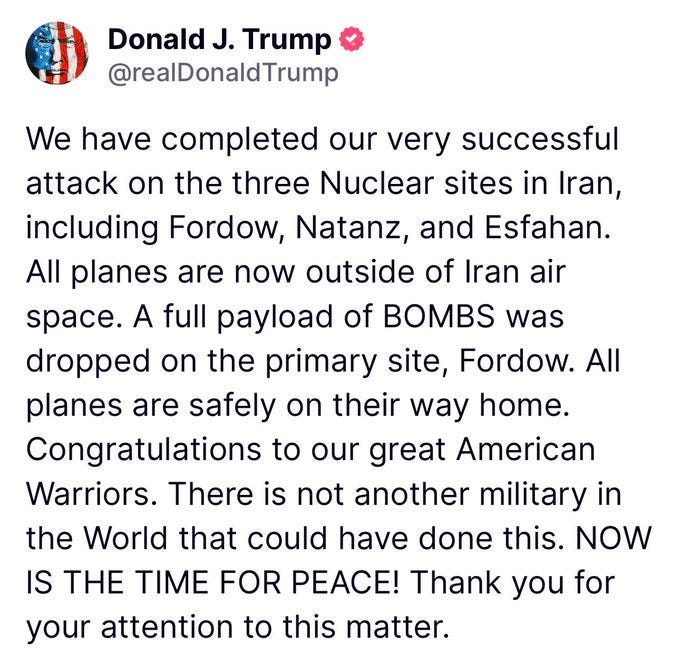The US attack against Iran has provoked a strong reaction throughout the world, including from Pope Leo XIV. It raises the important question of what the Catholic Church teaches regarding war. The starting point for this is found in Sections 2308 of the Catechism of the Catholic Church:
“All citizens and all governments are obliged to work for the avoidance of war.
However, “as long as the danger of war persists and there is no international authority with the necessary competence and power, governments cannot be denied the right of lawful self-defense, once all peace efforts have failed.””
This is further elaborated upon in the following Section of the Catechism:
“The strict conditions for legitimate defense by military force require rigorous consideration. The gravity of such a decision makes it subject to rigorous conditions of moral legitimacy. At one and the same time:
- the damage inflicted by the aggressor on the nation or community of nations must be lasting, grave, and certain;
- all other means of putting an end to it must have been shown to be impractical or ineffective;
- there must be serious prospects of success;
- the use of arms must not produce evils and disorders graver than the evil to be eliminated. The power of modern means of destruction weighs very heavily in evaluating this condition.”
Here, we must ask whether it is certain that Iran's nuclear program will inflict lasting and grave damage upon the United States or the community of nations. In his press conference after the bombing, the President of the United States said, among other things:
“For 40 years, Iran has been saying, 'Death to America, death to Israel.' They have been killing our people, blowing off their arms… with roadside bombs. We lost over 1,000 people and hundreds of thousands throughout the Middle East, and around the world have died as a direct result of their hate in particular. So many were killed by their general, Qassim Soleimani. I decided a long time ago that I would not let this happen. It will not continue…We've gone a long way to erasing this horrible threat to Israel.”
That does not answer the question of whether Iran's nuclear program poses a grave, lasting, and certain threat to the United States or the Community of nations.
Even if one pretends, for the sake of argument, that the first condition has been met, that still leaves the second condition: have all means of ending the Iranian nuclear program been shown to be impractical or ineffective?
For that, one can look to the recent bilateral negotiations between the US and Iran regarding Iran's nuclear program. Those negotiations came to a recent halt, though, after Israel bombed numerous sites in Iran, and killed or wounded several people involved in Iran's negotiating team.
The United States knew about that attack in advance and provided some support for it. Thus, it cannot be said that the US exhausted all peaceful means of ending the Iranian nuclear program.
However, even if we pretend, for the sake of argument, that the US exhausted all peaceful options, there's still the question of whether the attack had a serious prospects of success.
Some reports have noted that Iran evacuated the bombed sites several days in advance. The US had at least some knowledge of this evacuation. Also, even when combined with the June 13 raid, the attack on the nuclear sites still leaves open the possibility that Iran could simply move their evacuated material to other sites and continue work on their nuclear program.
Also, it is conceivable that other nuclear powers could respond to the raid by providing nuclear assistance to Iran. Thus, it cannot be said that there was a serious prospect that the raid would destroy the Iranian nuclear program.
However, even if we pretend, for the sake of argument, that a serious prospect of success existed, there's still the fourth and final question: will the US raid against Iran “produce evils and disorders graver than the evil to be eliminated?”
The Catechism notes that the “power of modern means of destruction weighs very heavily in evaluating this condition.” As noted, this raid could cause some nuclear nations such as China, Russia, and North Korea, to provide assistance to Iran such that it might obtain a nuclear weapon quicker than it otherwise would have.
Also, the raid further exacerbates tensions in the middle east, in particular, between Jews and Muslims, the full effects of which cannot ascertained. It could also exacerbate tensions between the US and other nuclear nations.
Furthermore, the raid could cause retaliatory strikes which could cause more death and misery. Considering that the raid did not eliminate Iran's nuclear program and caused no casualties, it is possible that future responses to the raid could easily exceed damage caused by the raid.
Thus, it cannot be said that the fourth condition in the Catechism has been met by the US bombing raid against Iran.





How beautiful it is to hear a calm and dispassionate deliberation of this subject in the light of the teaching of the magisterium on what constitutes a moral use of force. Many thanks!
Thank you for your excellent application of Catholic moral teaching on just war to the current situation, bringing light to this very emotional subject.